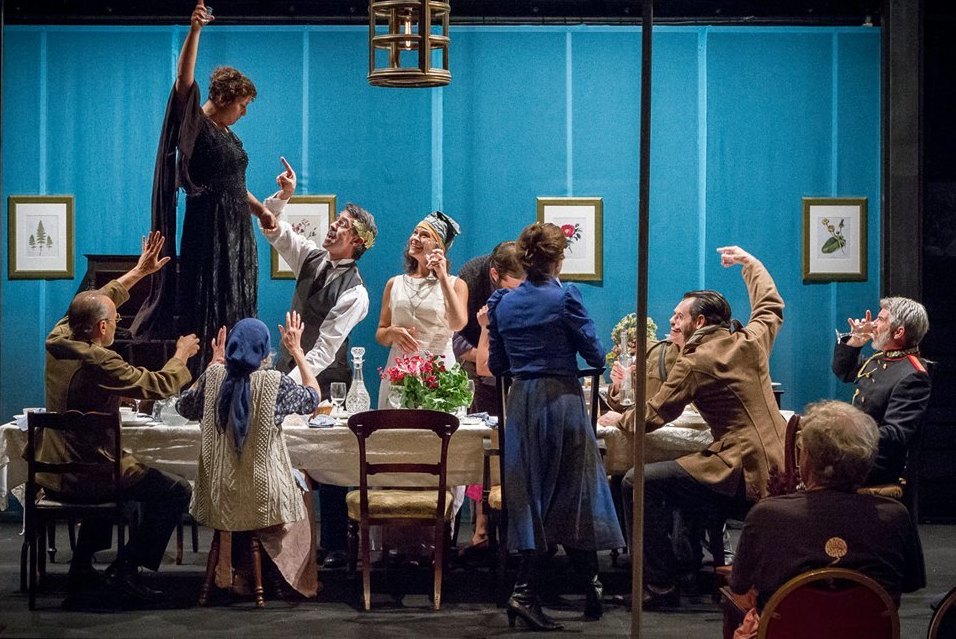Review: PETE's Three Sisters

Image: Owen Carey
This is not your high school English teacher's The Three Sisters. Lewis & Clark theater professor Stepan Simek's new translation is fast, blunt, and at times quite funny. But what really sets this performance apart from the staid productions that have turned off a century of audiences is the Portland Experimental Theatre Ensemble's dynamic set and staging, under Simek's direction.
PETE's design team has transformed Reed College's gorgous new black box theater into a 19th century Russian country house. As we enter, one actor swings in the garden, while others invite us in to sit in seats placed around the living room and serve us sparkling juice, like we're guests at the birthday party of youngest sister, Irina. As the show begins, the cast members circulate energetically around us, the pitch swinging from rambunctious party, a conga line snaking through clumps of audience members, to anguished despair, the actors lying literally at our feet. The effect is intoxicating, enfolding us into the action and forcing us to choose which characters to watch as multiple relationships unfold around us.
The Three Sisters
PETE
Reed College
Thru Aug 17The next act has us peering (slightly frustratedly) into a white-skrim-wrapped bedroom as the town burns outside, and then we move to the garden for the third act's final goodbyes.
The performances from the local all-star cast are generally strong, although the inexplicable difference between the stylistic characterizations by PETE's core members (particularly Jacob Coleman, who feels at times like he's in a different production entirely) and the more naturalistic performances by the rest of the casts is a bit jarring.
Of course, the play is still about the decline and discontent of a family of Russian aristocrats, whose sisters dream of escaping their "shithole" of a town for Moscow, all the while watching silently as their brother squanders the family fortune—and any chance of escape—on gambling and his cheating wife. Yes, you will still leave wanting to drown their sorrows in a bottle of vodka, but thanks to the liveliness of the production, at least you'll leave aspiring to be more a philosophizing drinker than a black-out drunk.




